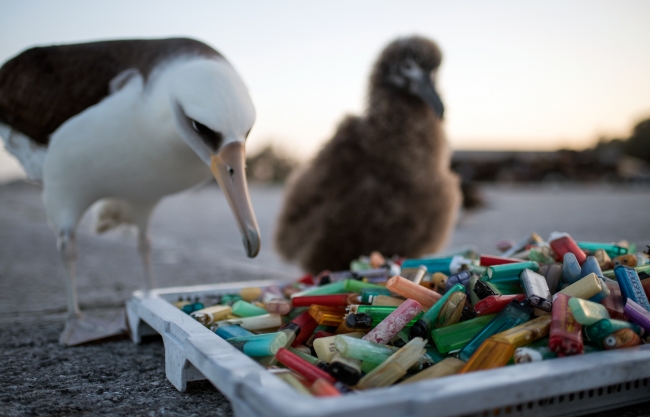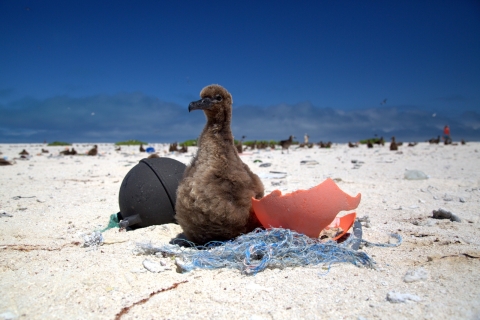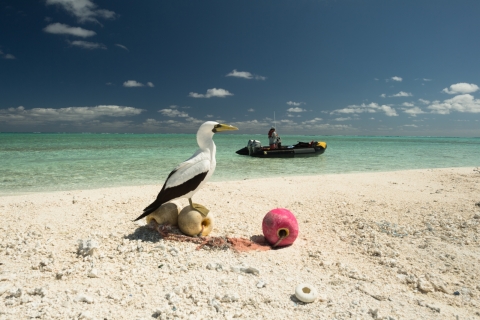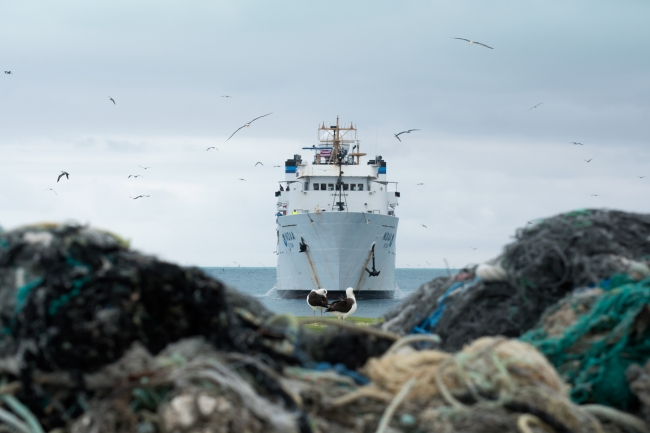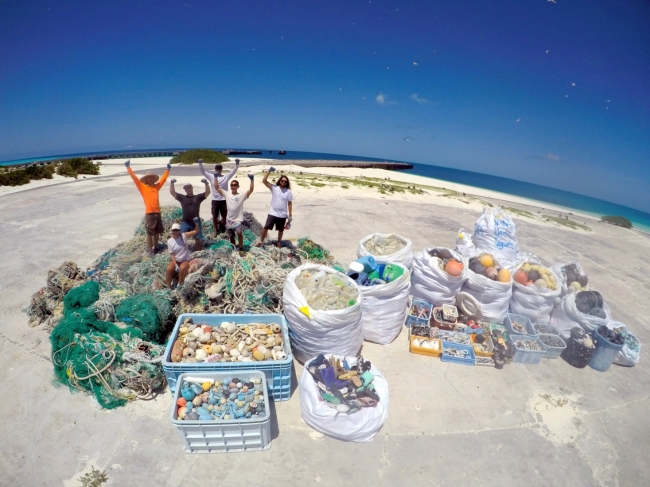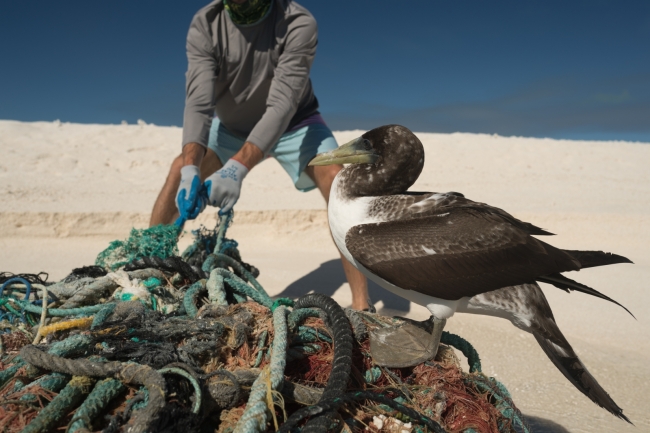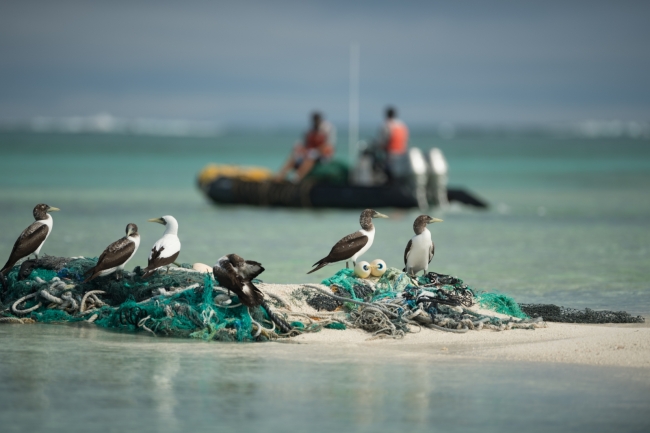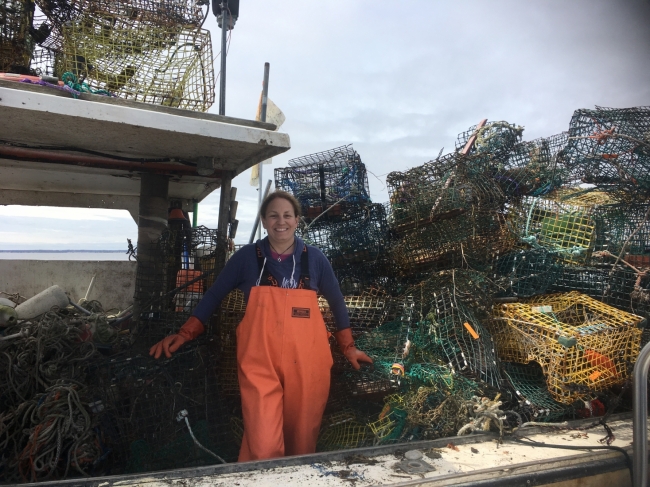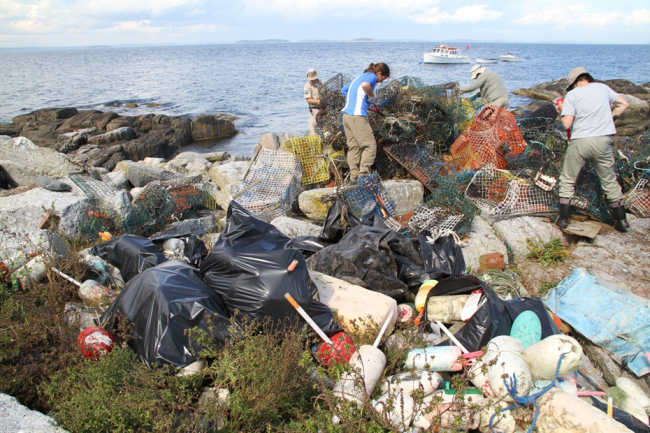It’s almost World Migratory Bird Day! Coming up on Saturday, May 9, we are working with Environment for the Americas to raise awareness on the importance of migratory bird species and celebrate the ways they connect our world. Many species of birds depend on our ocean, some migrating thousands of miles across wide stretches of water in search of food and habitat. Unfortunately, the world of birds and people can collide in the ocean and Great Lakes, where marine debris can be found in even the most remote places, including far-off islands where seabirds find shelter and breeding grounds.
In the Pacific, the Papahānaumokuākea Marine National Monument (monument) is home to 14 million seabirds who make their home on the shorelines of islands and atolls in the largest seabird rookery in the world. Despite their remote location, over 50 tons of marine debris each year, mostly made up of derelict fishing gear, finds its way onto the shores of the monument, posing an incredible danger to these birds who may become entangled in derelict fishing nets and plastic debris, use these materials for their nests, and eat plastic bottle caps, lighters, and other small debris.
Although birds are impacted by marine debris, in some places they may be contributing to the marine debris problem! More than 100 species of sea birds are known to snack on plastic. Although some birds may become sick or even die when they eat marine debris, others may pass the plastic through their system and deposit it throughout their habitat. A study of seabirds of the coast of Canada’s Labrador Peninsula found that about half of the birds studied had microplastics in their poop. Tens of thousands of these birds feed all over the north Atlantic, then return to their rocky island roosts, and poop together. These birds are collecting microplastics from wide swaths of the ocean, and concentrating them in one place, potentially creating large rings of plastic pollution around their colonies.
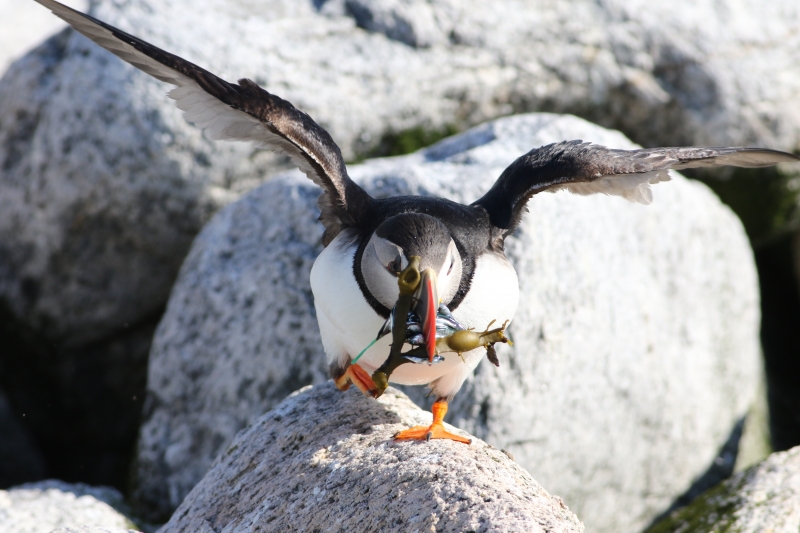
The Marine Debris Program funds projects around the United States that help benefit the habitats that birds depend on, and prevent marine debris from getting into the environment in the first place. At the Papahānaumokuākea Marine National Monument, hundreds of tons of marine debris have been removed from shorelines since 1996 through a major multi-agency undertaking. The Marine Debris Program has supported this removal mission since 2006, with the most recent mission taking place in 2018.
In Maine, the Marine Debris Program is working with the National Audubon Society to remove and study debris on eight islands important for many species of breeding seabirds, including several endangered and threatened species. The islands accumulate debris throughout the year, but especially during seasonal storms and high tides when derelict lobster traps and other debris wash ashore. With the help of lobster fishermen, the National Audubon Society will remove debris from these islands and raise awareness in nearby communities.
Marine debris starts with people, and we all play a role in the solution. There are many ways you can help make a difference and reduce the impacts of marine debris to migratory bird species. One way to get started is by practicing the 4Rs: Refuse, Reduce, Reuse, and Recycle. You can also spread the word to others in your community! No one person can solve this problem alone. Tell your family, friends, community, and more about this important issue and what they can do to help. Lastly, you can be a responsible steward of our ocean, waterways, and Great Lakes by disposing of things like trash and fishing line properly, no matter where you are. Whether you live on the ocean or hundreds of miles away, we are connected to the ocean; our trash travels and can harm the birds and other wildlife that share our planet.

